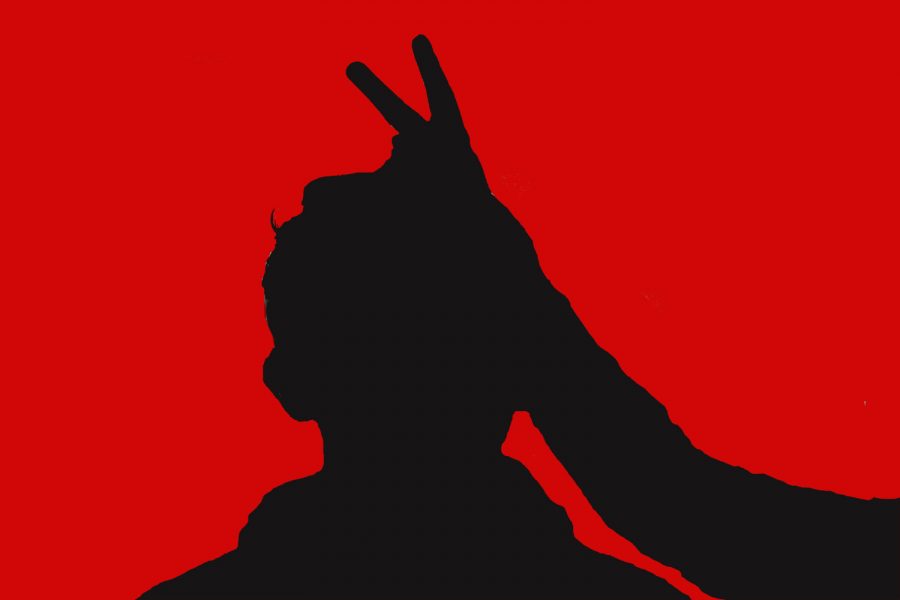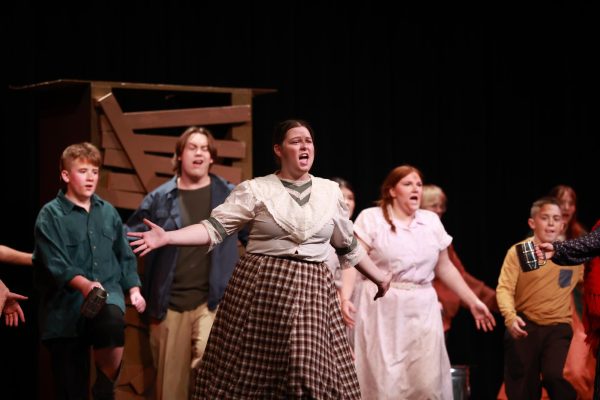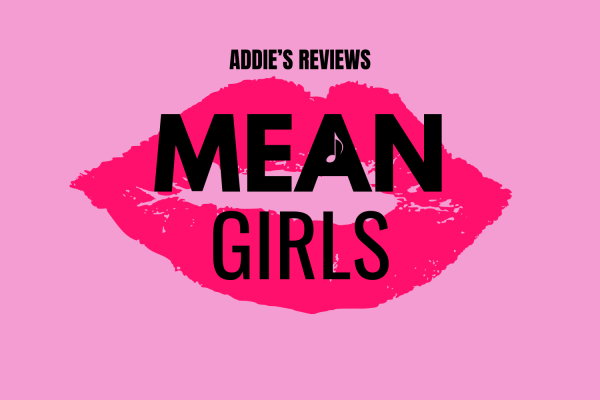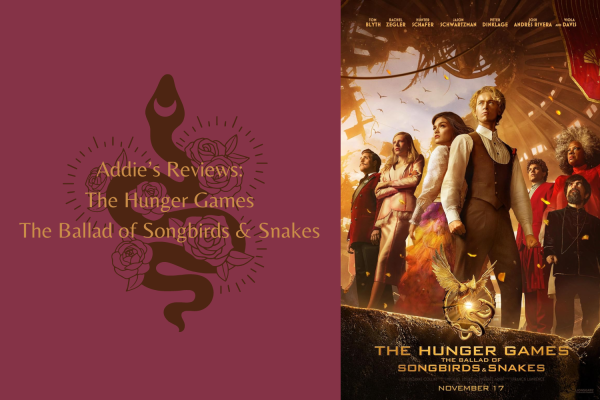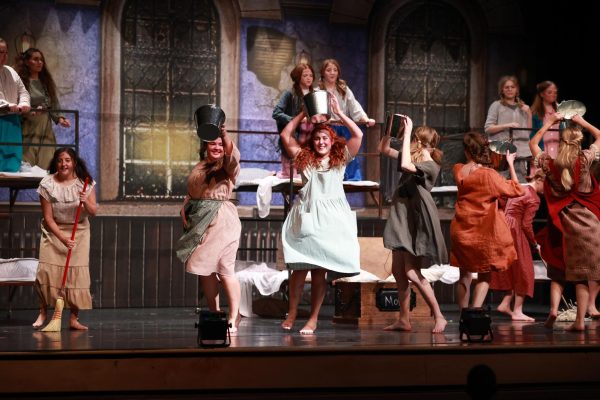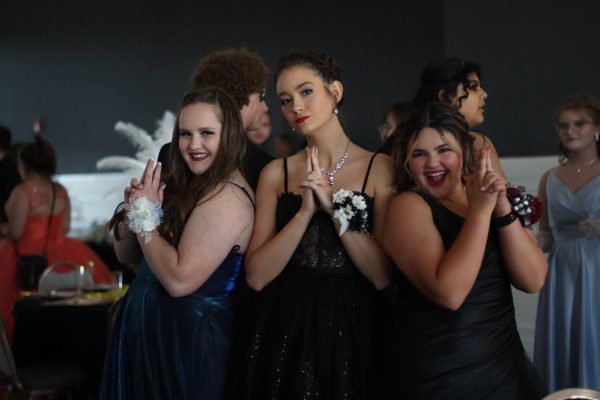‘Jojo Rabbit’ gives movie-goers needed laughs, lessons
“Jojo Rabbit” tells a coming-of-age-story set in World War II Germany.
The screen floods with black and white footage of hundreds of girls screaming, running, and crying with joy of seeing their idol embark from a plane. In the background, plays “Komm gib mir Deine Hand,” or “I Want to Hold Your Hand” by the Beatles in German. Mixed in the old film, is a little boy running through the streets of a small German town in a brown uniform. We see the worrisome image of Adolf Hitler getting off a plane with the same girls storming him on the runway.
“Jojo Rabbit,” is a boy’s coming-of-age story from hate obsessed Nazi supporter in West Germany in late World War II to a kind, rational and loving pre-teen. The satire focuses on the relationship between Jojo Betzler, played by Roman Griffin Davis, and his imaginary friend, a laughably stupid Adolf Hitler, played by co-writer and director Taika Waitti. Other cast members include Scarlett Johansson as Jojo’s mother Rosie and Thomasin McKenzie as Elsa Korr. The film is based on the book “Caging Skies” by Christine Leunens.
While the movie gives uneasy feelings about laughing at such serious matters, “Jojo Rabbit” reveals that deep messages about hate and compassion can be packaged with comedy. In a time when nationalism is on the rise and with prejudice spreading worldwide, the film contains enduring lessons that can be applied in any era.
This gives the film an edge over other movies dealing with the same topics of rage, hate, racism and the dangers of ignorance.
— Caroline Ragland, 11
The movie is timeless, not to make the 1940s a hip decade, but to remind us that we are always just a major powershift away from the next world war. The film lets the audience view people in Nazi-era military uniforms, dresses, and shoes talking like they just walked off the street in modern-day America. This gives the film an edge over other movies dealing with the same topics of rage, hate, racism and the dangers of ignorance. The movie has a lasting impact because of its relevance, and its characters communicate those messages across.
Jojo, our 10-year-old protagonist, serves to remind us that every German was affected by the war, from young boys and girls in Hitler Youth camps to old men and women who were forced into service to defend their cities as the Allies closed in. The audience watches as a child deals with the stress of war-torn Europe, fighting against the establishment, a major mortality crisis, and death all the while he finds himself amid the typical issues of a fifth-grader ranging from bullying to friends, school and just trying to get by.
Although difficulties in Jojo’s life keep popping up, his mother, Rosie, provides a strong role model for the boy. She displays a “keep going” attitude and supports her son as he tries to do his part for Germany’s war effort. While she does this, Rosie shows strength against the repressive Nazi regime, going as far as to hide a Jew within her walls. Jojo eventually finds their guest, a teenage girl named Elsa, but chooses to keep her a secret in fear of the repercussions. Through this, Jojo finds his belief system at odds with the life he is living. And his imaginary friend is not happy about this.
While the movie is fully spoken in English, the diversity of languages used throughout the show lends to the overall feeling of an updated 1940s.
— Caroline Ragland, 11
At first, the absurd Hitler laughs, dances and sings, but he is slowly replaced by a haunting, angry, racist, and pathetic Hitler who shines a light on how easily hate can be concealed. While it makes the audience uncomfortable to chuckle at Hitler as he parades around foolishly, skipping through the streets of fascist Germany, those troublesome feelings are used to expose the realities of what happens when a society of people blindly follow and conform to a government that’s only mission is to spread harm.
With the characters teaching us lessons about morality and hate, the film is scored to perfection. There is a good mix of swing music sung in English fitting nicely with the costumes, classic rock translated into German at peak times in the story, and classical movie music in the background at the appropriate times. While the movie is in English, the diversity of languages used throughout the show lends to the overall feeling of an updated 1940s.
In the end, the viewers are left with a feeling of happiness for our characters, but a worry for what is about to happen to them. History lasts far longer than the closing scene of the movie, but you can leave the theater knowing that Elsa and Jojo will be all right in the end. As they dance in the street to David Bowie’s “Heros” or “Helden” in German, viewers hit the bright light outside of the doors of the movie theater with a new perspective on today’s challenges.

Hi guys! I’m Caroline, and this is my fourth year in the journalism program and my third year writing for The Eagle's Tale. I am so excited to get back to working for the paper and writing about the wonderful people here at Canyon High as a senior....

